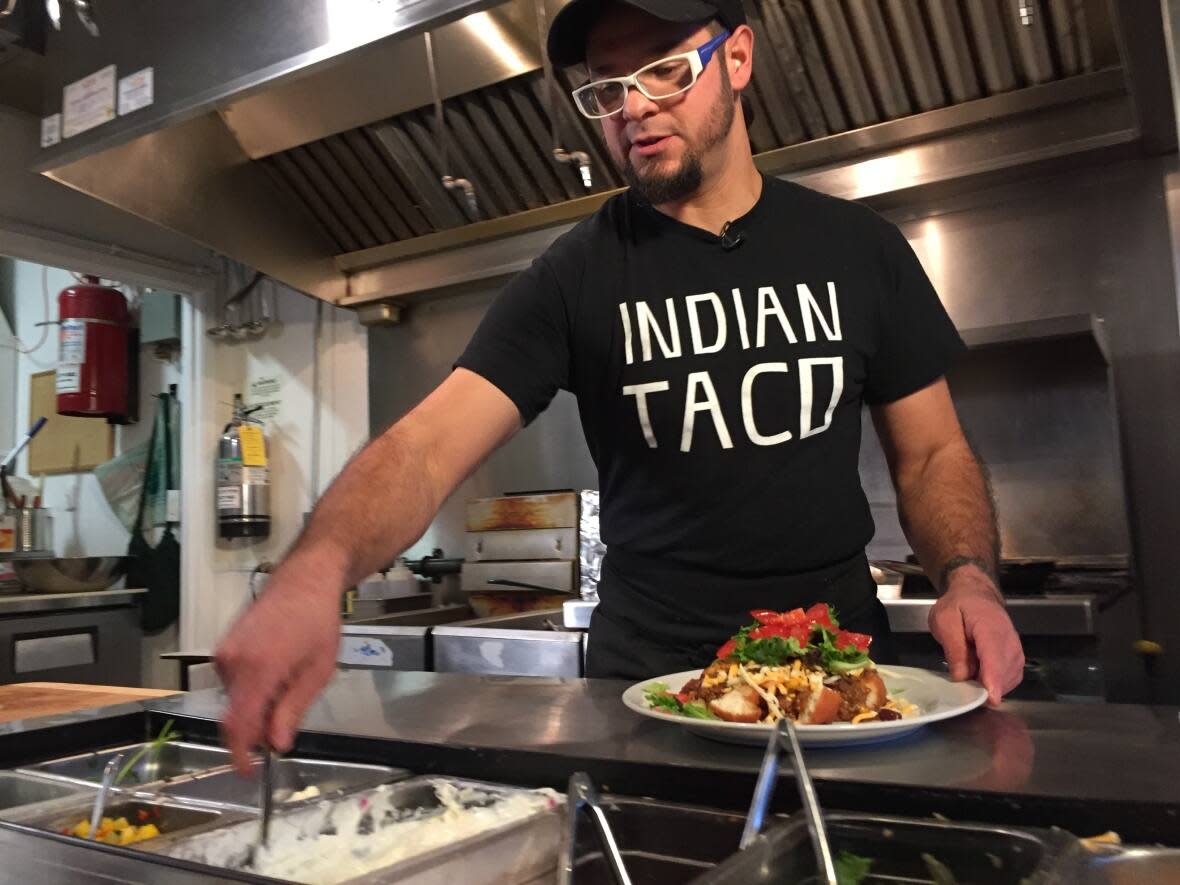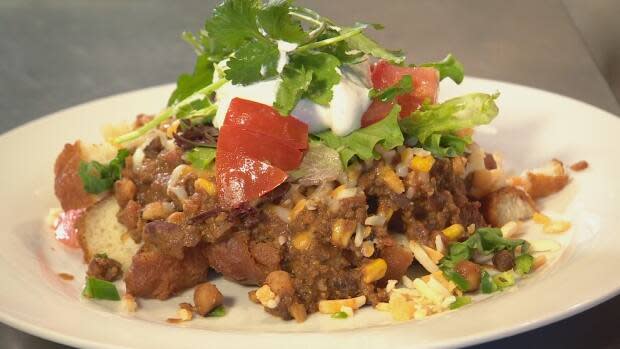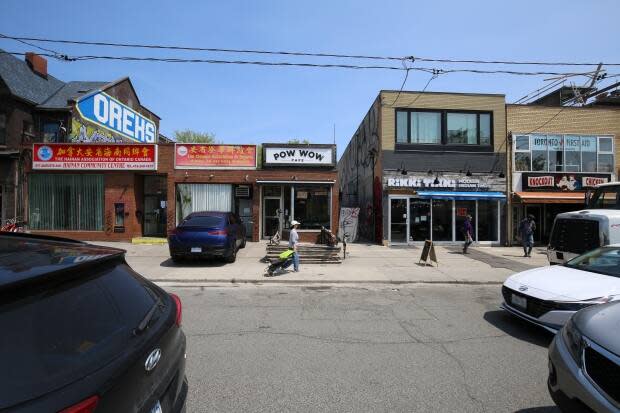Have you had an 'Ojibway taco'? If not, act quick — Toronto is losing a cafe devoted to powwow fare

Toronto is losing one of its three remaining Indigenous restaurants later this month, a closure that will chop down the representation of Indigenous cuisine in the city after the recent closure of two other such spots.
The Pow Wow Cafe has been dishing out classic powwow fare using traditional ingredients since it opened in 2016. Diners have enjoyed everything from corn soup with smoked duck to the classic fry-bread taco.
But with his Kensington Market landlord selling the building, Chef Shawn Adler says the cafe will close for good on May 28. The closure comes after two others in recent years. Ku-Kum Kitchen folded in in 2019 and NishDish in 2020.
Adler said he intended to sell the business after five years, but now says he will put his focus on his flagship restaurant in Eugenia, Ont.
"We've had that restaurant for 13 years and we live there, so we're just gonna sort of concentrate our efforts on The Flying Chestnut," he said.
When the cafe's doors close, Toronto suffers two losses. First, the urban Indigenous community has one less place to gather. Second, those who haven't tried an "Ojibway taco" — a crispy and doughy treat that's become a best-seller — will have to venture further for the experience.
Fry-bread taco's roots technically not Indigenous
Fry-bread is a well-known dish in many Indigenous communities across Canada — similar to bannock, but fried instead of baked. Pile on top some fresh chopped lettuce, seasoned ground beef, tomatoes, cheese and sour cream and voila — you've got yourself what's commonly known as a "fry-bread taco."
WATCH | CBC Toronto toured the cafe when it opened to check out its signature tacos:
For Indigenous customers, it's comfort food. "I see the looks on their faces when they try our fry bread ... it brings them back," Adler told CBC Toronto.
For others, it's a brand new experience. Before opening the Pow Wow Cafe, Adler had been slinging his tacos at music festivals and powwows around Toronto.
But while the fry-bread taco has become an staple at powwows, its roots aren't actually Indigenous.

Joseph Shawana, an Odawa chef and chair of Indigenous Culinary of Associated Nations, puts it simply: powwow food isn't Indigenous food.
"Tacos, Blanket dogs (scone dogs) chili aren't anywhere Indigenous. Bannock, Fry Bread or Scone is such a colonial food that it was given to use in rations," he said.
"We had to make do on what was given to us to survive as we were relocated countless times from our traditional homelands to other parts of the country. And when we were displaced a lot of our food went with it."
Shawana said Indigenous communities have their own unique food systems, each with hundreds of recipes using traditional foods. Powwow food, while tasty, isn't the healthiest, he added, noting the introduction of Western foods contributed to a surge in diabetes within many communities.
Traditional Indigenous foods consisted of anything harvested from the natural environment. This helped maintain physical fitness, health and grew their knowledge of the land.
For Indigenous people, hunting, gathering, cooking and eating was about more than just simply satisfying a need — it was a way to be connected with each other and it brought the community together, Shawana said.
But for Adler, whether or not fry-bread is "traditional" remains an open question.

"It is currently a debate whether powwow food — dogs and Indian tacos — is this traditional? To me it's pretty traditional," he said. "I don't know how long something has to be in your culture before it becomes traditional."
The Pow Wow Cafe, he said, proves that despite the debate, the "Ojibway taco" can still represent the culture in a diverse culinary market.
'Peak comfort food'
Leni Brem, a non-Indigenous tourism consultant, had never tried Indigenous food before 2020 but now considers it "peak comfort food."
"I don't think I could have told you what it was, beyond the stereotypes of bannock and fry bread," she said.
Brem was not only shocked to learn that many of the foods she enjoys are traditional Indigenous ingredients, but also by how good the food can be.
"When I ate the Indian tacos at the [Pow Wow Cafe], I was blown away — first by how colourful and abundant the plates looked, and then by how delicious it was."
Even with the cafe closing, Adler said he thinks Toronto is still a great spot for Indigenous people to share their food — that is, if they're willing to take up the space.
"Indigenous representation here is a lot further ahead than in some other places. We're ahead of the game but still far behind in many ways," he said.
"But at the same time I think it's up to us as Indigenous people to make our presence here and claim what's rightfully ours."
Looking to learn more about Indigenous food? Check out this episode of CBC Radio's Unreserved:


